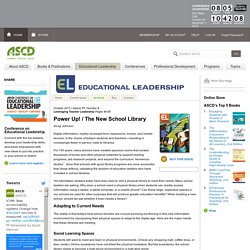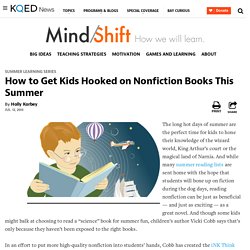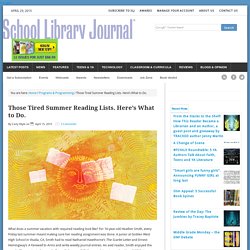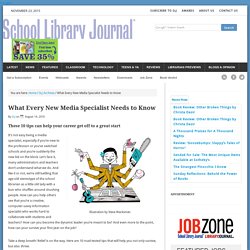

Educational Leadership:Leveraging Teacher Leadership:The New School Library. Digital information, readily accessed from classrooms, homes, and mobile devices, is the choice of today's students and teachers—resulting in increasingly fewer in-person visits to libraries.

For 100 years, many schools have created spacious rooms that contain thousands of books and other physical materials to support reading programs, aid research projects, and expand the curriculum. Numerous studies1 show that schools with good library programs are more successful than those without, validating the wisdom of education leaders who have invested in school libraries. Yet information seekers today have less need to visit a physical library to meet their needs.
Many school leaders are asking, Why does a school need a physical library when students can readily access information using a laptop, a tablet computer, or a mobile phone? Can these large, expensive spaces in our schools be used for other purposes that will produce greater education benefits? How to Get Kids Hooked on Nonfiction Books This Summer.
The long hot days of summer are the perfect time for kids to hone their knowledge of the wizard world, King Arthur’s court or the magical land of Narnia.

And while many summer reading lists are sent home with the hope that students will bone up on fiction during the dog days, reading nonfiction can be just as beneficial — and just as exciting — as a great novel. And though some kids might balk at choosing to read a “science” book for summer fun, children’s author Vicki Cobb says that’s only because they haven’t been exposed to the right books. In an effort to put more high-quality nonfiction into students’ hands, Cobb has created the iNK Think Tank, an organization of award-winning children’s authors who write Common Core-aligned nonfiction books for kids of all ages. (During the school year, iNK will even bring the authors to classrooms, via videoconference, to discuss their books directly with students.) Consuming true stories might also be beneficial to kids’ academic growth.
Those Tired Summer Reading Lists. Here’s What to Do. What does a summer vacation with required reading look like?

For 16-year-old Heather Smith, every Friday last summer meant making sure her reading assignment was done. A junior at Golden West High School in Visalia, CA, Smith had to read Nathaniel Hawthorne’s The Scarlet Letter and Ernest Hemingway’s A Farewell to Arms and write weekly journal entries. An avid reader, Smith enjoyed the novels. “It was nice to have a challenge,” she says. Still, the mandatory journal-writing did little to enhance her experience. Once school began, there was no discussion about the books, Smith says. Jennifer Frantz can’t blame high schoolers for taking shortcuts. Other educators agree, and advocate for students to have more summer reading options—including more contemporary choices from diverse authors. Questioning the classics Frantz’s summer list includes stories that students can tackle with less guidance. What’s the argument for keeping classic novels on the list? Ten Tips to Flip Re-thinking themes.
The New School Library. Without question, the Internet has changed the way we think and learn, and will continue to do so as our technology evolves. In particular, the ability to access enormous amounts of information at any time from almost any place is forcing schools to redefine the idea of a classroom and the way we approach teaching. It is also reshaping the notion of school library services — what libraries look like and how they and librarians best serve schools. Increasingly, we hear the questions: “Are libraries necessary today? Isn’t everything on the Internet? What Every New Media Specialist Needs to Know.
These 10 tips can help your career get off to a great start Illustration by Steve Wacksman It’s not easy being a media specialist, especially if you’re new to the profession or you’ve switched schools and you’re suddenly the new kid on the block.

Let’s face it, many administrators and teachers don’t understand what we do. And like it or not, we’re still battling that age-old stereotype of the school librarian as a little old lady with a bun who shuffles around shushing people. How can you help others see that you’re a creative, computer-savvy information specialist who works hard to collaborate with students and teachers? Take a deep breath! 1. 2. 3. 4. 5. 6. 7. 8. 9. 10. The Shift: Media Specialists and the Common Core.